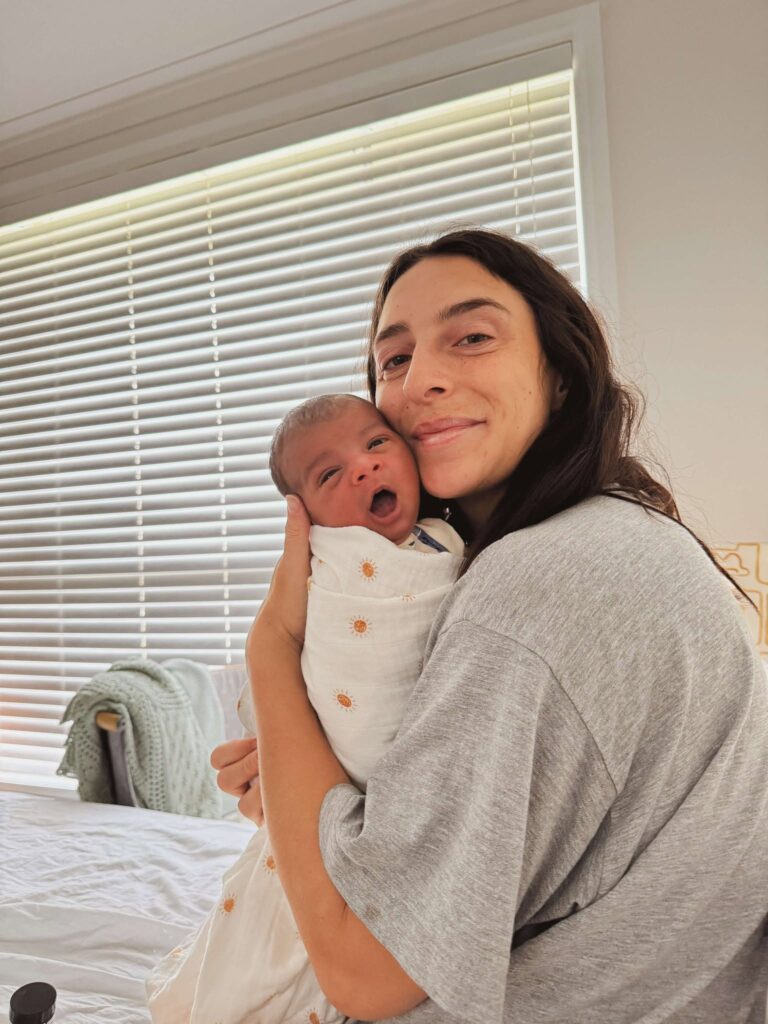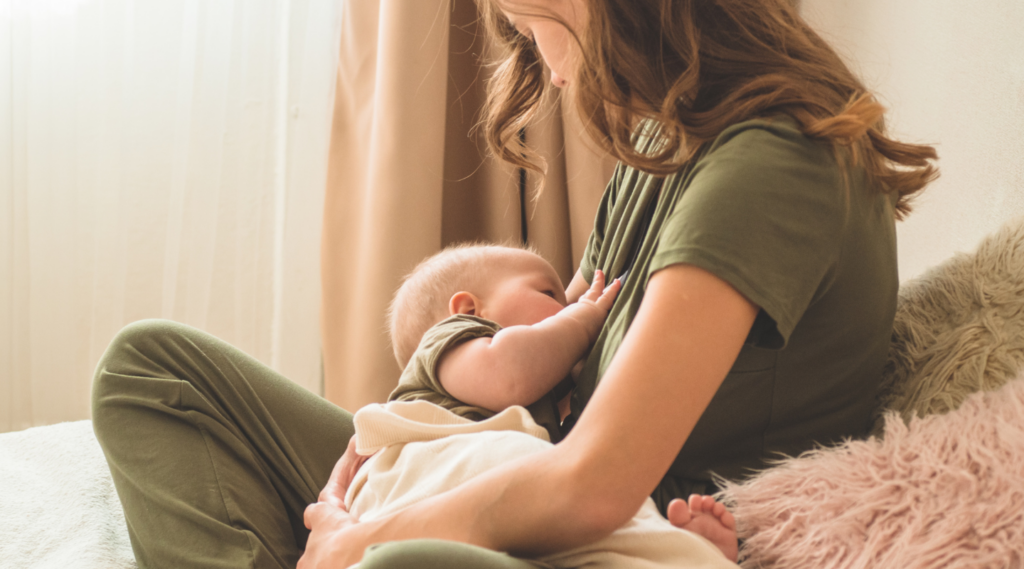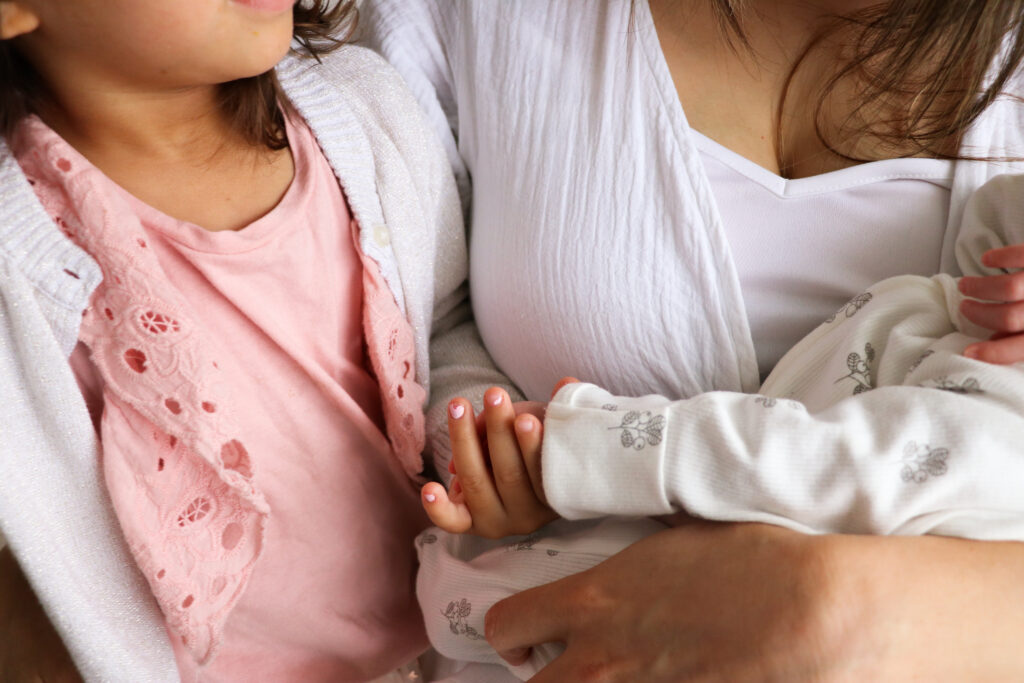As a Holistic Nutrition Consultant and Mother of four, I know what it is like to have experienced postpartum depression. Here I will share about the Mismatch Hypothesis and 10 ways to reduce your risk of postpartum depression. I hope this post encourages you.

I truly feel for new mothers who are not only adjusting to their new identity as a mother and getting to know their baby, but in addition, are struggling with their mental health.
I was one of those women when I fell pregnant with my second daughter. From 10 weeks pregnant till roughly nine months postpartum, I experienced antenatal/postpartum depression. It was also around the time when the global pandemic hit, which exacerbated the depression.
I endured many days where I did not have any motivation to get out of bed or play with my almost two year old toddler, There were nights where I would cry myself to sleep. It was a difficult time.
However, with support from family and friends, seeking help through counselling and through my faith in God, I was able to overcome the depression.
By studying holistic nutrition for postpartum, I was able to gain a new understanding about why postpartum depression is more prevalent than ever.
I will touch on something called the Mismatch Hypothesis and then explore 10 ways to reduce your risk of postpartum depression.
What I will cover
- What is the Mismatch Hypothesis?
- 10 ways to reduce your risk of postpartum depression
- Some helpful links

What is the Mismatch Hypothesis?
Our westernised society has made a drastic mistake in idolising career over family, that we often neglect the mothers who suffer at home from postpartum depression.
While there are many reasons for this, our ancestors had a lot to say about how nutritious food and social support are fundamental to caring for new mothers.
Many women feel the dominating pressure to return to work after giving birth, whether it be for financial reasons or due to losing a sense of purpose that they find in their work.
No wonder more postpartum women are being diagnosed with depression.
But let’s look at it from a scientific perspective. The Mismatch Hypothesis has a lot to say about how we are living drastically different lives to our ancestors, which is largely responsible for why postpartum depression is on the rise.
The Mismatch Hypothesis tells us that there is a huge dietary mismatch between us and our ancestors. Our ancestors lived on plenty of whole foods, fatty fish and fibre.
A 2013 study on the impact of low Omega-3 levels on postpartum women (Study) revealed that women with lower levels of Omega-3 indicated a higher depression score three months postpartum. So think about how our highly processed diet, void of whole foods including Omega 3s, is affecting our mental health, particularly for a hormonal shifting, sleep-deprived new mum.
The Mismatch Hypothesis tells us that there is a drastic difference in not only how we eat compared to our ancestors, but the support we receive from loved ones, our social structures, our lack of sun exposure and more I will explore further.

10 ways to reduce your risk of postpartum depression
I have the strong belief that women should begin to prepare for their postpartum during their pregnancy. Postpartum can be such an uncertain time for a new mother. So many varying emotions, a lot less sleep, navigating breastfeeding and getting to know your newborn.
With my first two babies, I did not prepare well for my postpartum. It was not until I had my third baby, that I became intentional about preparing for my postpartum. These 10 ways have helped me during my last two postpartum periods and I hope they help you too.
- Incorporate Omega 3’s into your diet: as I mentioned before, consuming omega 3’s (especially DHA), whether from seafood or supplementation (my recommendation), decreases the likelihood of postpartum depression due to its importance for brain health.
- Incorporate more Vitamin D into your diet: Vitamin D deficiency is also linked to postpartum depression, so consuming Vitamin D foods often will support brain health and energy levels (foods like eggs, seafood and milk).
- Get out in the sun: linked to number two, Vitamin D does wonders for your mental health. Sun exposure is just another factor that supports mental health. This is especially important if you live in a place that does not see the sun often (I recommend supplementing with Vitamin D if so: 10, 000 IU).
- Socialise: it seems obvious, but making sure that you are getting support from family and friends just by being around them during this time, is important for mental wellbeing. Keeping isolated during this time will only heighten feelings of loneliness. Ask a loved one to come over at a time of day/night that suits them, go for a local walk with a friend, ask a friend to drop by for some tea or coffee. Don’t overcomplicate it and don’t feel bad for asking.
- Ask for help: Hunter-Gatherer families lived in close proximity to each other, where Grandmothers, Aunties and older siblings would all help the new mother. These days, mothers are living more isolated than ever. We need to put aside our pride and ask for help if possible. Loved ones are often looking for ways to help but don’t know how to. It helps them when you are specific with the help that you need. With my third baby, I asked people to chip in financially for a Postpartum Doula. For my fourth baby, I asked my mum to organise a meal train for me. Everyone was willing to help out, but sometimes it takes the mother to be specific in what she needs during her postpartum.
- Do some form of exercise: exercising in a way that is realistic for you will do wonders for your mental health. Of course, take it easy in the first six weeks of your postpartum, but even going out for walks or doing some gentle stretches in the early weeks can support your mental health. If you have older children, involve them. There’s nothing like a family work out that helps to bring joy to the household and get those endorphins working.
- Eat nourishing foods: I’ve worked with many mothers who prioritise their nourishment last. This leads to nutrient deficits, hormonal imbalances, dehydration and sometimes thyroid dysfunction. It also plays a huge part in the functioning and wellbeing of your mental health. Make sure you eat three full meals with protein, whole carbs and fats and nourishing snacks in between (check out this post for some ideas).
- Prioritise sleep: I know this is easier said than done, but whenever you can choose between sleep and another thing demanding your time (unless it’s your other children needing to be fed), then sleep must come first. Especially in those first few weeks when your body is still recovering and your newborn’s sleeping patterns are all over the shop, sleep should be a priority. And if you can’t seem to sleep in the day time, then just give yourself 15 minutes to close your eyes and focus on your breathing. That can do wonders for your body and mental health.
- Do something each day for yourself: whether it be reading a book while nursing or watching a movie while rocking your baby to sleep, just find something to do purely for you. I gave up the notion that if my baby was asleep, then I could do something for myself. Some days, the baby just wants to be held all day. Even on those days, you can find something to do for YOU!
- Set up a postpartum mental health plan: I know this sounds lame, but if you know that you are prone to depression or think you may struggle mentally, then talking with someone you trust, like your spouse or close relative, about ways to support your mental health during your postpartum, can be the thing that helps you from spiralling. This could look like finding rhythms in your week that you look forward to, setting up a meal train so you don’t have to worry about cooking, carving out time for your spouse to have the baby while you go for a walk etc. Whatever works for you, having things in place and communicating them to someone could help tremendously.
Some helpful links
Here are some helpful links for when you think you might have postpartum depression or are just feeling like you need extra support:
My favourite Motherhood Podcasts:
Mama, know that you are not alone. From one mum who has gone through postpartum depression, let me stress how worth it you are to get the support you need. From preparing for a blissful and not stressful postpartum to enduring the roughest of nights with your newborn, I hope you are able to get the help you need.
Leave a Reply